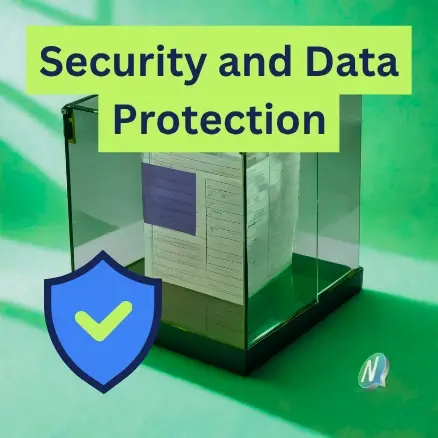How election integrity is ensured in online voting.
Security & Data Protection in Online Voting
Trust is the foundation of every democratic election. Security and data protection are therefore paramount in digital voting. Modern online voting systems must meet the highest standards to ensure the integrity of the electoral process and justify the trust of all stakeholders.

Why Security in Online Voting Is Critical
Online voting offers numerous advantages: it’s more cost-effective, eco-friendly, and can significantly increase voter turnout. However, these benefits can only be fully realized if the digital election is at least as secure as a traditional paper ballot. Four core principles must be met:
Authentication ensures that only eligible voters can cast a ballot. Integrity prevents any manipulation of votes – both from external sources and from the voter altering their own submission after casting it. Ballot secrecy protects the anonymity of each individual vote. Availability guarantees that the system runs reliably throughout the entire voting period.
Another crucial aspect for election software is shown in the image: GDPR compliance is essential for any online voting tool operating in the EU.
GDPR Compliance as a Basic Requirement
Since the General Data Protection Regulation (GDPR) came into force, online elections must meet strict data protection requirements. This applies not only to the technical implementation but also to transparent communication about data processing and ensuring voters’ rights. GDPR-compliant election software not only protects against legal risks but also builds trust among eligible voters.
Top-Level Technical Security
Behind a secure online election lies a range of advanced technologies working seamlessly together. These include end-to-end encryption for the secure transmission and storage of all votes, as well as modern key management systems that strictly control access.
A multi-layer server architecture strictly separates sensitive election data from other system areas, while intrusion detection and prevention systems (IDS/IPS) identify and block attack attempts in real time. In addition, data isolation and containerization ensure that each election runs as an independent, fully separated instance.
Certified cloud environments compliant with ISO/IEC 27001 and comparable security standards provide infrastructure-level protection. Regular penetration tests by external security experts detect vulnerabilities early.
Even in the event of an incident, operations remain secure: automated backups and disaster recovery plans enable a rapid restoration of the voting process without compromising the integrity of results.
On NemoVote and in this guide section, you will find detailed information on all aspects of online voting security:

